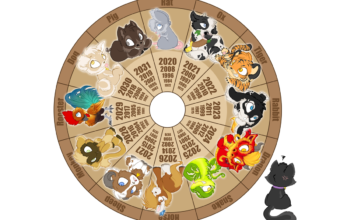Helen Reddy – I Am Woman (1971)
I’ve chimed in about anthems before, and not altogether flatteringly.
Certainly, I could have continued in that thread and played to the typecast of Helen Reddy‘s meteoric 1971 signature. But no, that wasn’t the way.
One of the greatest lyrics in the entire pop music anthology wasn’t written as a functional sound byte. Reddy never intended her breakout single to be adopted to a cause, or sounded as a clarion call for a battle that still rages nearly a half-century later. Though, mind we, she’s not the littlest bit sorry it worked out that way.
Rather, in the day’s zeitgeist she felt a spontaneous charge of affirmation that she couldn’t get out of her head with pitchforks and blasting caps
I’m strong, I’m invincible…
She crafted a two-verse lyric around it, shared it with Australian singer-songwriter Ray Burton (who was living in the US at the time and would, ironically, be deported on a visa issue shortly after), to supply the notes, and then recorded it for her 1971 debut album titled (even more ironically) I Don’t Know How to Love Him. The song wasn’t released as a single until the following year, and once it got legs on the airwaves, it reached #1 on the Billboard Hot 100 by the end of 1972.
The timing couldn’t have been better. 1973 was a watershed year in social progress, particularly in Women’s Lib (as it was then called). The US Supreme Court would hand down a lasting ruling in Roe v. Wade, Gloria Steinem would launch Ms Magazine and Billie Jean King would wipe the floor with the sports world’s sitting asshole, Bobby Riggs (that event just couldn’t possibly have been more delicious). In that context, the already-famous I Am Woman was fully weaponized.
But I’m not here to talk about that, see. I’d rather spend some cycles on why it was this particular song that occupied that spot in the bullet chamber.
First, the lyric is front and centre. There’s no big intro, no instrumental hook to distract from the extramusical message, and no thematic musical development in the form of a bridge (there isn’t one), counterpoint (uncheck) or cheeky riffs (uncheck). No instrumental solos either. Just two simple verses with a chorus transition. The iconic refrain is the very end of that chorus: it’s stated only once after each verse and it goes off like a bomb.
[ed. For the radio single release, Reddy was asked to add a third verse to bring the song up to a still-pithy three minutes. That verse, with its stanza “But I’m still an embryo / with a long, long way to go / Until I make my brother understand” made some feminists wince, with the pregnancy metaphor and the implied male validation.]
The out-pitch is set up in the verse. The walking tempo with its rhythmic short-short-long framework (which I’ve abstracted below in the unrecorded click pattern) iterates twice per bar, implying quick, steady momentum. The musical movement, just like its social instigator, is on-purpose and unreflective. The G-major key is optimistic and positive.

But the chorus transition makes a move. We’re going to F-major, two fifths away and a whole-tone lower, a much more business-like musical transaction. It’s almost jolting. And it should be. Stating one’s strength and invincibility is no ad jingle.
But the biggest punch is about to be delivered at the end of the chorus. The short-short-long pattern from the verse remains, and the notes themselves are no slower, but it’s now separated by two more beats so that each pattern occupies its own bar, an effective pause on every eclat

With the elongation this pattern becomes a military war-drum. and the rhythmic impact of “Strong”, “Invincible” and “Woman” is absolutely devastating. We can never, not ever, unhear those three words. And even if we didn’t collectively right all sexist wrongs then and there (and we certainly haven’t), at least we were all listening.
I’m less interested that the song is an ‘anthem’ than why it’s thus. At the end of it all, something was going to be played at womens’ rallies whether this tune got written or it didn’t. I Am Woman was going to succeed on its own merit and not because a social cause needed it, or any other composition, to do so.
It’s just a fucking great song.



